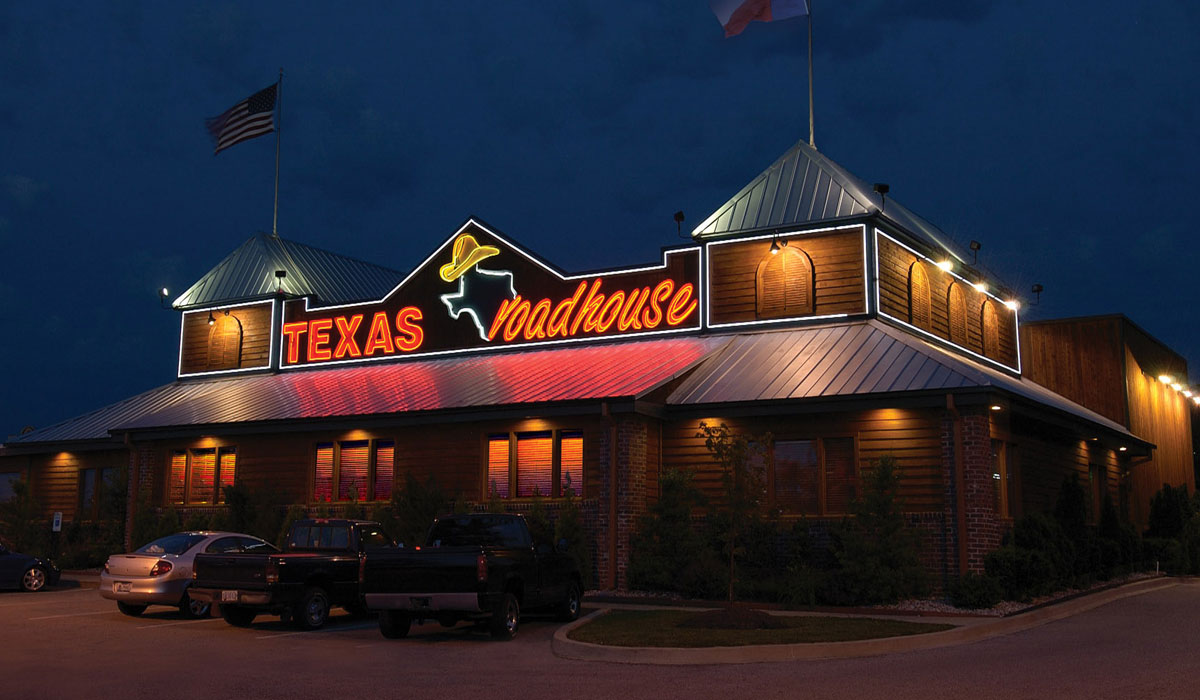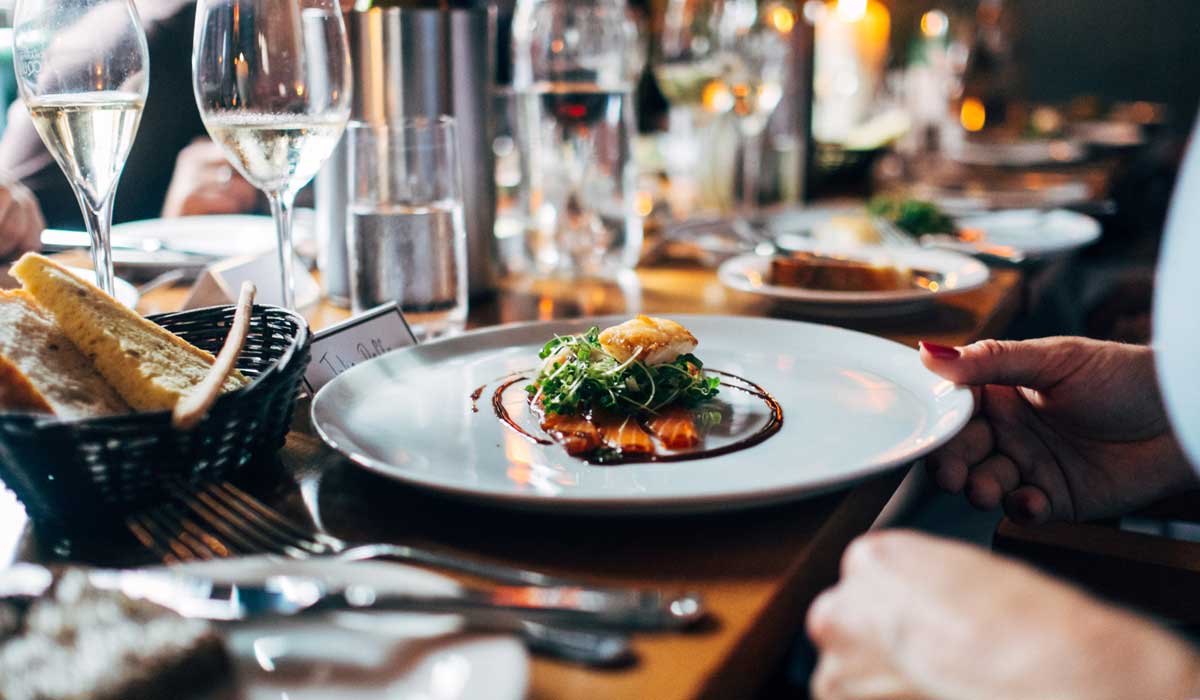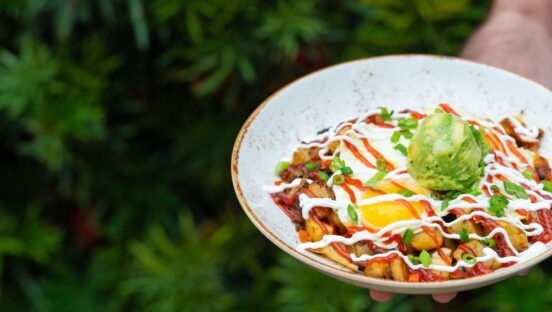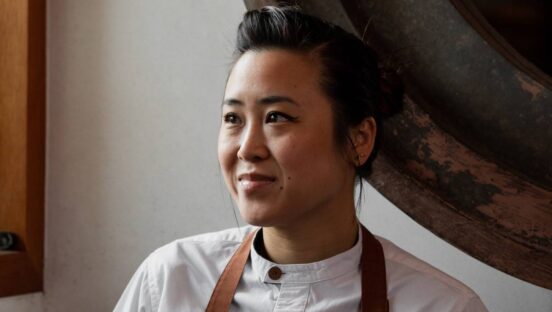










The unprecedented events of 2020 made it one for the record books. The year was chock-full of pivotal moments, impactful decisions, and action in the face of uncertainty. For foodservice specifically, that meant contending with dine-in bans and restrictions, wholeheartedly embracing off-premises, innovating creative social-distancing measures, and keeping employees on payroll. The world doesn’t stop, even for a pandemic, and other, more longstanding issues also came into play, including racial inequity and employee wages.
Given all that’s transpired, it’s difficult to distill 2020 into a few stories. So instead, we’ve curated a group of inflection points that represented major pivots for not just individual restaurants or particular segments within foodservice, but rather for the greater industry.
With several restaurant leaders admitting they’ve grown weary of the word “pivot,” here’s hoping that 2021 will be somewhat less eventful.
As the first wave of the pandemic swept the U.S. in March, The Cheesecake Factory was one of the first major brands to furlough employees amid store closures and plummeting sales. The brand also made headlines for publicly declaring that it wouldn’t pay rent the following month. J. Alexander’s, Landry’s, Luby’s, and the company formerly known as CraftWorks made similar moves that month.
Although the initial relief package came quickly, it immediately proved to be ill-suited for the unique challenges facing foodservice compared to other industries. Staffing requirements for the Paycheck Protection Plan (PPP) prevented many operators from taking advantage of the loan. The uncertainty around a COVID-19 timeline (which persists today) didn’t help matters.
The rise of foodie culture had spawned a robust dining scene and secured restaurant visits as a favored pastime for many consumers. For full-service operators in particular, the pandemic presented an identity crisis—one that has continued to rankle the sector. Once the dust settles, will dining out still be a beloved pastime?
In spite of all the dismal news at the start at the pandemic, some restaurant leaders offered a bright spot. Texas Roadhouse CEO Kent Taylor was among the first leaders of a major chain to forgo his salary and instead use those funds to help front-line hourly employees. Other executives, including Bloomin’ Brands’ David Deno, soon followed Taylor’s example.
Texas Roadhouse CEO Gives Up Salary to Help Front-Line Employees
Following the murder of George Floyd, marches and protests erupted across the country. Although many restaurants—and other businesses—have long strived to steer clear of social causes, Gerry Fernandez, president and founder of the Multicultural Foodservice and Hospitality Alliance, urged restaurants to use their voice and take a stand against racial injustice. As Fernandez said in June, “This the time to stand up and be counted. You will be remembered for the conversations that you did not have. This is not a Black thing. This is an American thing.”
Brinker International, parent of Chili’s and Maggiano’s Little Italy, quickly embraced COVID-era limitations by launching It’s Just Wings. Using kitchen space out of existing restaurants, the completely digital brand capitalized on an uber-popular (and easily transportable) food while also featuring a new menu to differentiate it from its sister concepts. Other brands, including Lazy Dog, Smokey Bones, and Bloomin’, have followed suit.
In August, the James Beard Foundation announced that for the first time in its 30-year history, it would not announce winners at its annual awards show. Instead, a live-broadcast ceremony would spotlight previously announced honorees. The decision came just one month after employees published a scathing letter that cited systemic racism within the foundation and called for specific changes to root out inequity.
FSR’s annual report was something of a Jekyll and Hyde; sales figures from the previous fiscal year (2019) flew in the face of the stark realities of 2020. The vast majority of featured brands have had to furlough or lay off employees, close stores, halt growth, and in some extreme cases declare bankruptcy. With the NRA estimating that 100,000 restaurants will have closed long-term or permanently by year-end, it’s certain that the numbers in next year’s FSR 50 will look quite different.
Although cities across the country all felt the strain of the pandemic, some markets were hit harder at the outset and some began to recover more quickly. Myriad factors come into play—everything from local regulations to the dining scene to weather—but larger trends, like the rallying behind neighborhood independents, hint at what full-service will look like once COVID-19 is finally a thing of the past.
What Recovering Markets Tell Us About the Future of Full-Service Dining
The year ended on a somewhat hopeful note as the first wave of vaccines were administered to healthcare professionals and other essential workers. Nevertheless, fringe worries surfaced around the safety of the vaccines, prompting the U.S. Equal Employment Opportunity Commission to weigh in. Under its guidance, employers may require employees to be vaccinated before returning to work.
Should Restaurants Mandate COVID-19 Vaccinations for Employees?












